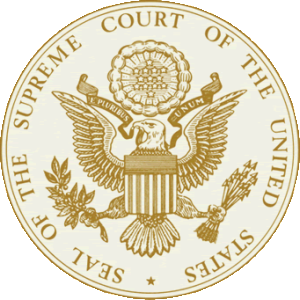 Supreme Court Rules on Federally Run Marketplace Subsidies
Supreme Court Rules on Federally Run Marketplace Subsidies
In the news earlier today, the Supreme Court of the United States (SCOTUS) has “ruled 6-3 that the federal subsidies that help nearly 6.4 million people pay for their Obamacare health plans are legal under the Affordable Care Act,” according to the CNBC website, June 25, 2015.
A brief synopsis of the King Vs Burwell case has King challenging the legality of the federal health premium subsidies offered on a non-state operated health insurance marketplace. The key to this argument are passages in the PPACA that stated the “state run” marketplace would offer subsidies, not federally facilitated marketplaces. The other side of the argument was that the legislation never meant to limit subsidies to “only” state run marketplaces. A possible underlying thought by the architects of the legislation might never have planned on a majority of states (34) not establishing their own marketplaces.
The SCOTUS ruling on subsidies re-enforces their earlier ruling on the legality of the individual mandate and the expansion of Medicaid under the PPACA. The two SCOTUS rulings are the foundation pieces for the legislation’s Employer Mandate. The Employer Mandate requires employers of 50 or more full time equivalent (FTE) employees to offer compliant coverage or face tax penalties. These tax penalties were intended to fund the subsidies for the individuals on Marketplace plans. However, with the staggered implementation and the inability to get coverage on the Marketplace website, the last part of the employer mandate has been postponed until January 1, 2016.
In the staggered implementation of the last 5 years, the ACA has implemented extended eligibility of dependents to age 26, expanded and defined minimum Essential coverage with the key notable dates of 1/1/2014 being the first Market place effective date for individual plans, and no pre-existing conditions implementation. But a revision of the ACA because of the timing of the first SCOTUS ruling pushed the implementation of the employer mandate to 1/1/2015 for companies over 100, and to 1/1/2016 for the employer mandate for companies down to 50 employees. The ruling also increased the community rating on traditional group plans to companies up to 100 employees.
In the latter half of 2014, group plans saw the rise in offering of Minimum Essential Coverage (MEC) plans that cover 63 specified physicals and Minimum Value plans (MV plans) that covered the MEC elements as well as doctor visits, testing, prescription drugs and emergency room (excluding hospital stays and most surgeries). These MV plans were ruled non-compliant by a joint HHS and IRS ruling for plans starting after November 4, 2014 or for grandfathered plans through 2015.
Employers will see another scramble by companies in the staffing, hospitality, retail and other industries work to offer new compliant plans for January 1, 2016 or face tax penalties on a per employee basis.
Choice Benefits Group is working to assist you in many ways to become or stay compliant for January 1, 2016. We are working to offer several new MV plan offerings along with cost effective buy up options and traditional plan designs for your employees. We can assist with voluntary plans such as dental, vision, life and more. Digital/web based enrollments, call centers and traditional paper enrollment vehicles will be available for most plans. Give us a call at 770.338.0188 or e-mail me at [email protected] for more information or to get a quote.
**All information is meant as a synopsis of the situation and not meant to be legal or tax advice. Plan compliance is the responsibility of the carrier and not the agency.
